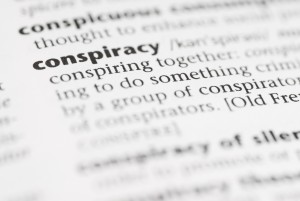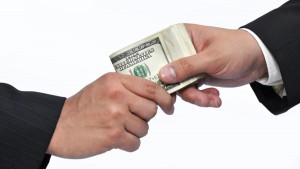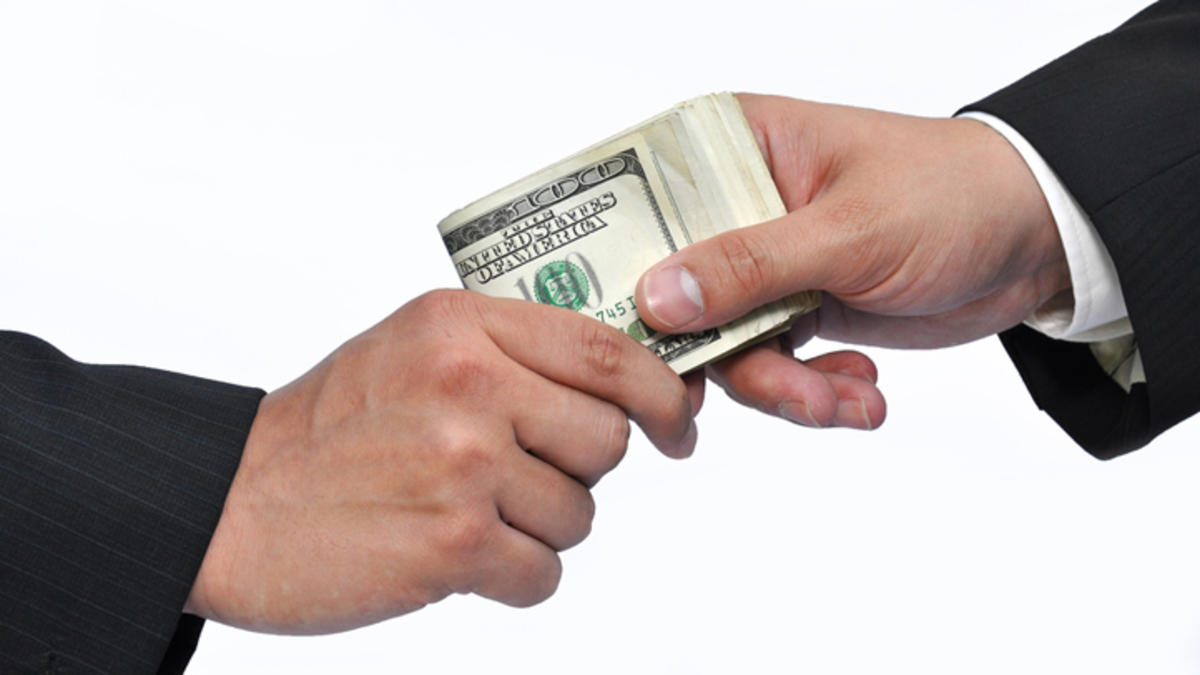Hobbs Act: Police Are Charged With Bribery For Sending Vehicles At Accident Scenes To Repair Shops For Payment
The United States Supreme Court
Ocasio v. United States
No. 14-361
Decided: May 2, 2016
Issue: Whether a public official/police officer is capable of conspiring to violate bribery laws under the Hobbs Act when in the course of his official duties, he persuaded car owners found at accident scenes to have their cars towed to certain automobile repair shops and received payment from the repair shops.
Holding The United States Supreme Court held that under rules of conspiracy law, petitioner was properly charged with conspiring with the shop owners when he routed damaged vehicles from accident scenes to an auto repair shop in exchange for payments. Peititoner violated Hobbs Act based on proof that he reached an agreement with the owner of automobile repair shop to obtain money under color of official right.
To prove this offense, the Government need only show that a public official has obtained a payment to which he was not entitled, knowing that the payment was made in return for official acts.

(a) The general federal conspiracy statute, under which petitioner was convicted, makes it a crime to conspire to commit any offense against the United States. 18 U. S. C. 371. Section 371’s use of the term conspire incorporates age-old principles of conspiracy law. And under established case law, the fundamental characteristic of a conspiracy is a joint commitment to an endeavor which, if completed, would satisfy all of the elements of the underlying substantive criminal offense. Salinas v. United States, 522 U. S. 52, 65.
Facts: A former officer in the Baltimore Police Department participated in a kickback scheme with the owners of a local auto repair shop. When petitioner and other Baltimore officers reported to the scene of an auto accident, they persuaded the owners of damaged cars to have their vehicles towed to the repair shop, and in exchange for this service the officers received payments from the shop owners. Petitioner was convicted of obtaining money from the shop owners under color of official right, in violation of the Hobbs Act, 18 U. S. C. 1951, and of conspiring to violate the Hobbs Act, in violation of 18 U. S. C. 371. He now challenges his conspiracy conviction, contending that, as a matter of law, he cannot be convicted of conspiring with the shop owners to obtain money from them under color of official right. We reject this argument because it is contrary to age-old principles of conspiracy law.
Legal Analysis:?The United States Supreme Court held that a defendant may be convicted of conspiring to violate the Hobbs Act based on proof that he reached an agreement with the owner of the property in question to obtain that property under color of official right. To prove this offense, the Government need only show that a public official has obtained a payment to which he was not entitled, knowing that the payment was made in return for official acts.Although conspirators must pursue the same criminal objective, a conspirator need not agree to commit or facilitate each and every part of the substantive offense.
Instead, if conspirators have a plan which calls for some conspirators to perpetrate the crime and others to provide support, the supporters are as guilty as the perpetrators. Salinas, supra, at 64; see Sand, supra, 19.01, at 1954. A few simple examples illustrate this important point. Entering a dwelling is historically an element of burglary, see, e.g., LaFave, supra, at 1069, but a person may conspire to commit burglary without agreeing to set foot inside the targeted home. It is enough if the conspirator agrees to help the person who will actually enter the dwelling, perhaps by serving as a lookout or driving the getaway car. Likewise, a specific intent to distribute drugs oneself is not required to secure a conviction for participating in a drug-trafficking conspiracy, United States v. Piper, 35 F. 3d 611, 614 (CA1 1994). Agreeing to store drugs at one’s house in support of the conspiracy may be sufficient. Ibid.
Not only is it unnecessary for each member of a conspiracy to agree to commit each element of the substantive offense, but also a conspirator may be convicted even though he was incapable of committing the substantive offense himself. Salinas, supra, at 64; see United States v. Rabinowich,238 U. S. 78 , 86 (1915).
These basic principles of conspiracy law resolve this case. In order to establish the existence of a conspiracy to violate the Hobbs Act, the Government has no obligation to demonstrate that each conspirator agreed personally to commit?or was even capable of committing the substantive offense of Hobbs Act extortion. It is sufficient to prove that the conspirators agreed that the underlying crime be committed by a member of the conspiracy who was capable of committing it. In other words, each conspirator must have specifically intended that some conspirator commit each element of the substantive offense.5
That is exactly what happened here: Petitioner, Moreno, and Mejia shared a common purpose, namely, that petitioner and other police officers would commit every element of the substantive extortion offense. Salinas, 522 U. S., at 6364. Petitioner and other officers would obtain property under color of official right, something that Moreno and Mejia were incapable of doing because they were not public officials. And petitioner and other officers would obtain that money from another, i.e., from Moreno, Mejia, or Majestic. Although Moreno and Mejia were incapable of committing the underlying substantive offense as principals, they could, under the reasoning of Holte and Gebardi, conspire to commit Hobbs Act extortion by agreeing to help petitioner and other officers commit the substantive offense. See Holte, 236 U. S., at 145.
For these reasons, it is clear that petitioner could be convicted of conspiring to obtain property from the shop owners with their consent and under color of official right. Accordingly the judgment of the United States Court of Appeals for the Fourth Circuit is affirmed.
